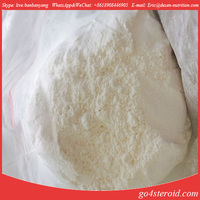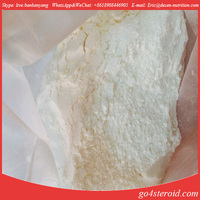Taurine CAS 107-35-7 improve body function
Product Quick Detail
- Minimum Order
- 1
- Place Of Origin
- China
- Packaging
- Exquisite packaging
- Delivery
- 3-7 work days
Specifications
Taurine, or 2-aminoethanesulfonic acid, is an organic compound that is widely distributed in animal tissues. It is a major constituent of bile and can be found in the large intestine, and accounts for up to 0.1% of total human body weight. Taurine has many fundamental biological roles, such as conjugation of bile acids, antioxidation, osmoregulation, membrane stabilization, and modulation of calcium signaling. It is essential for cardiovascular function, and development and function of skeletal muscle, the retina, and the central nervous system. Taurine is unusual among biological molecules in being a sulfonic acid, while the vast majority of biologically occurring acids contain the more weakly acidic carboxyl group. While taurine is sometimes called an amino acid, and indeed is an acid containing an amino group, it is not an amino acid in the usual biochemical meaning of the term, which refers to compounds containing both an amino and a carboxyl group.
Nutritional significance
Taurine occurs naturally in fish and meat. The mean daily intake from omnivore diets was determined to be around 58 mg (range from 9 to 372 mg) and to be low or negligible from a strict vegan diet. In another study, taurine intake was estimated to be generally less than 200 mg/day, even in individuals eating a high-meat diet. According to another study, taurine consumption was estimated to vary between 40 and 400 mg/day.
Energy drinks
Taurine is an ingredient in energy drinks. Many contain 1000 mg per serving, and some as much as 2000 mg.
Magnesium taurate
Magnesium taurate, the magnesium salt of taurine, is a mineral supplement of magnesium.
- Country: China (Mainland)
- Business Type: Manufacturer,Trading Company
- Market: Americas,Europe,Oceania
- Founded Year: 2010
- Contact: ava yang










